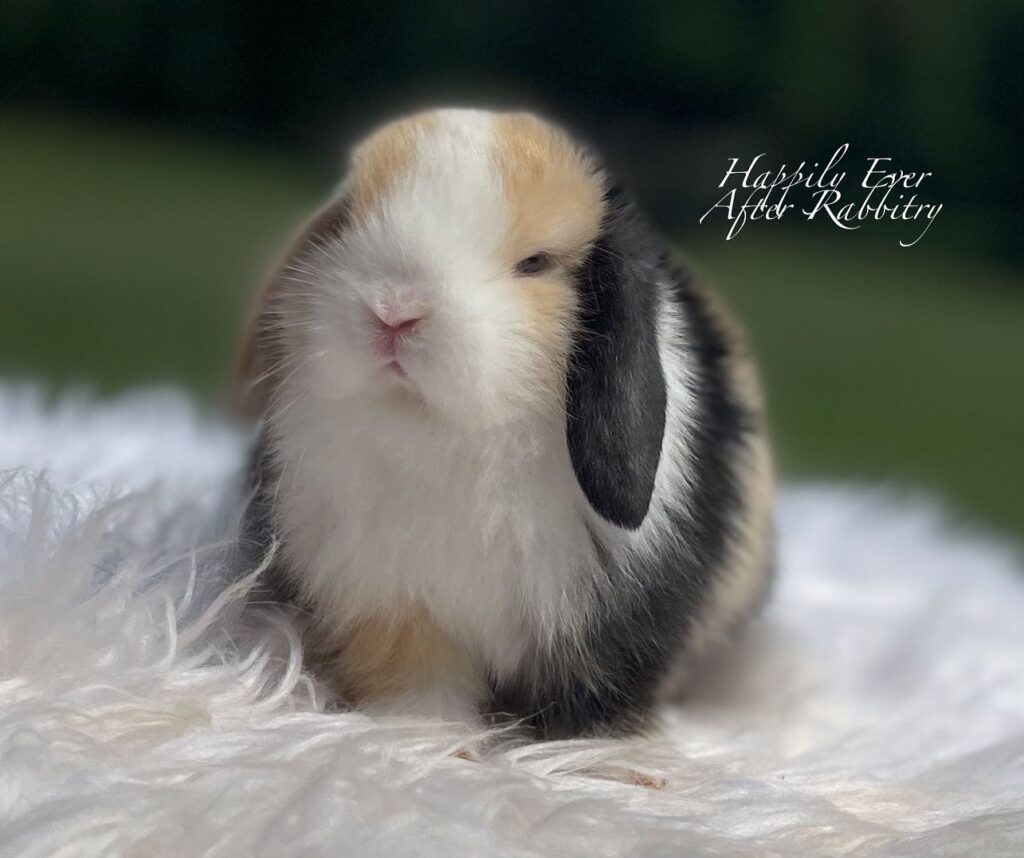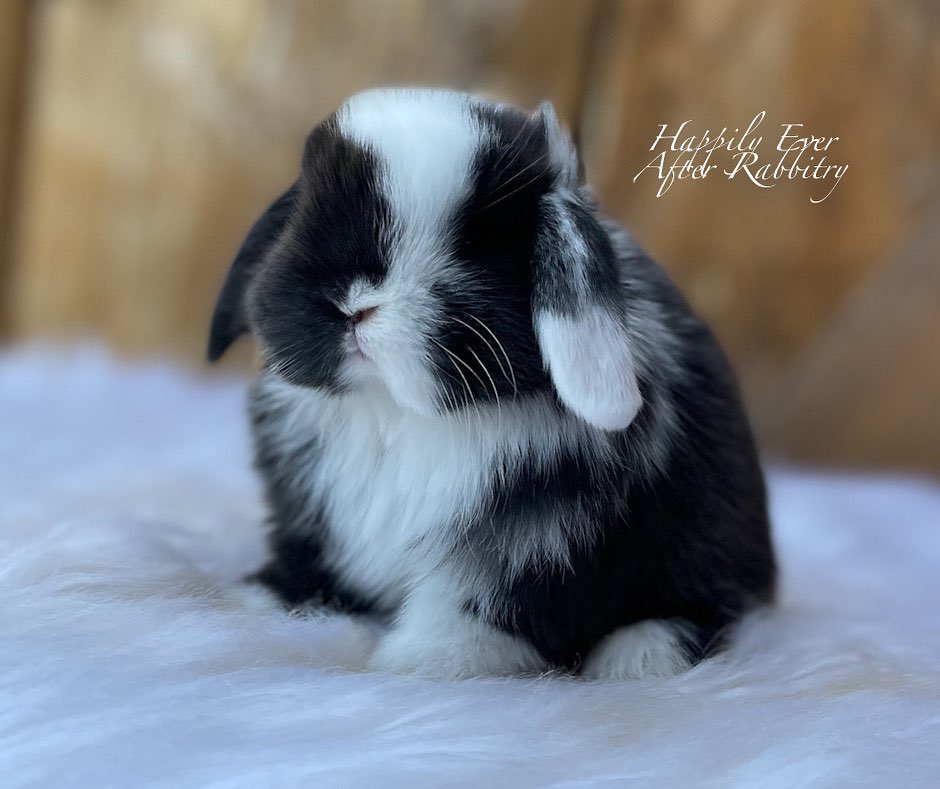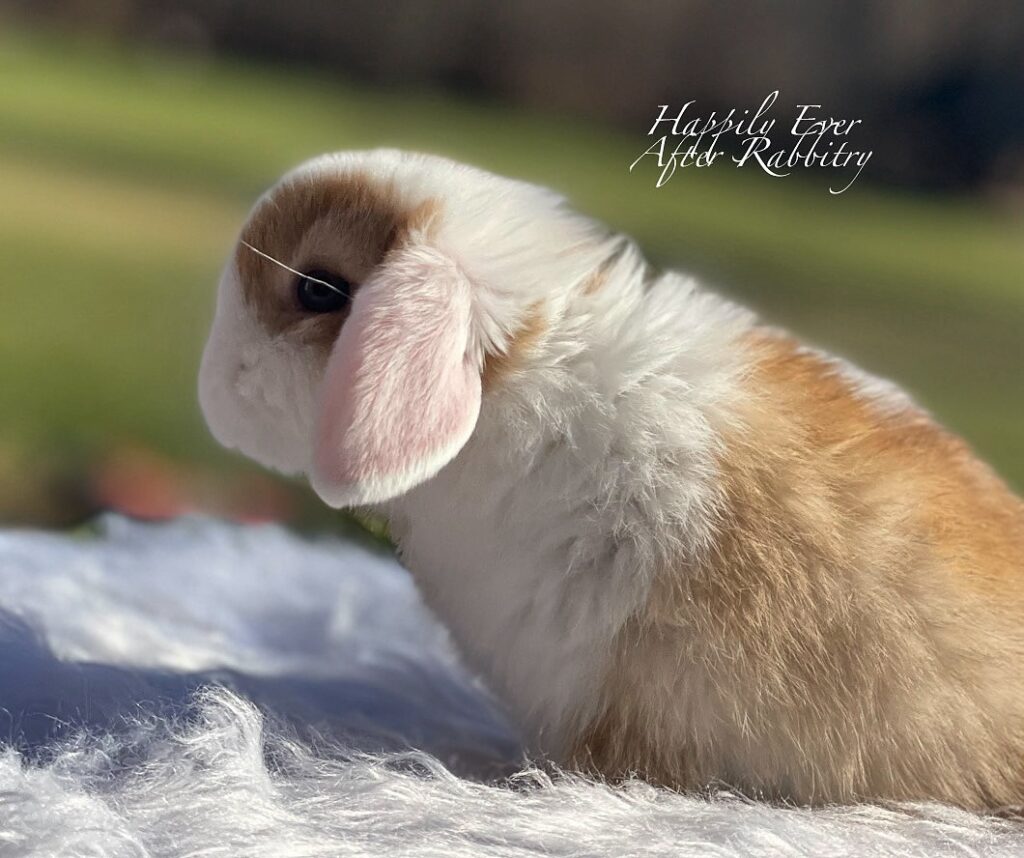Baby Bunny FAQs
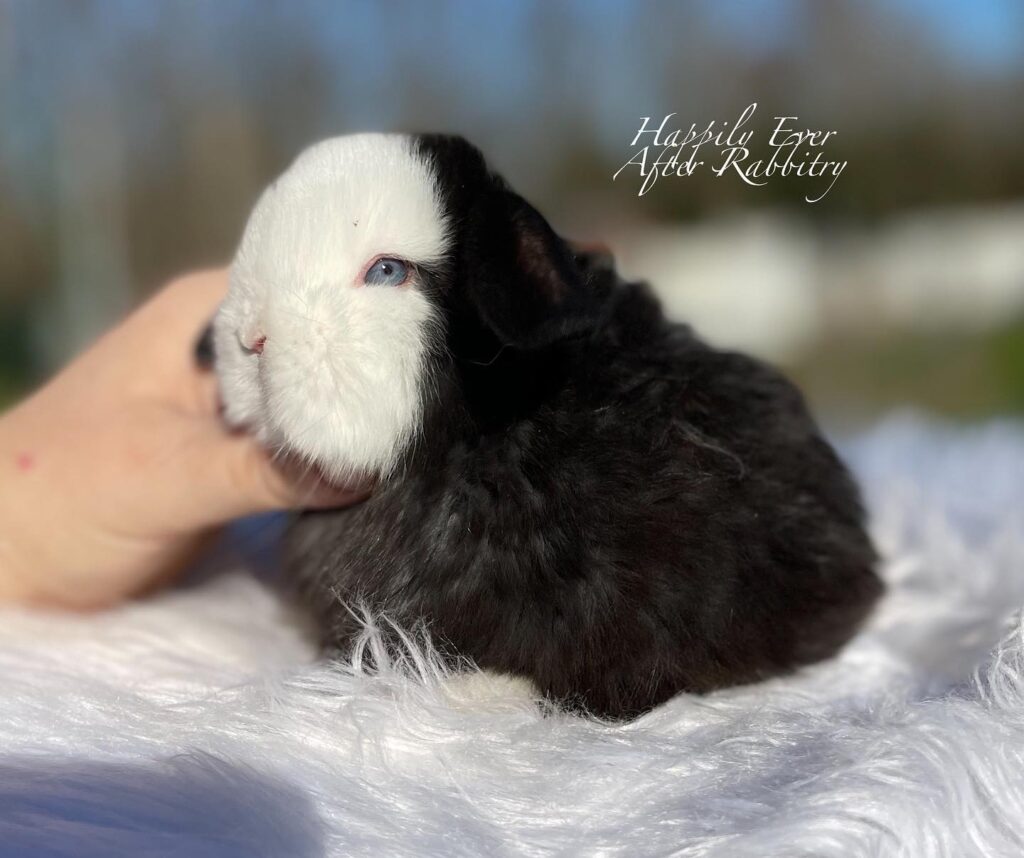
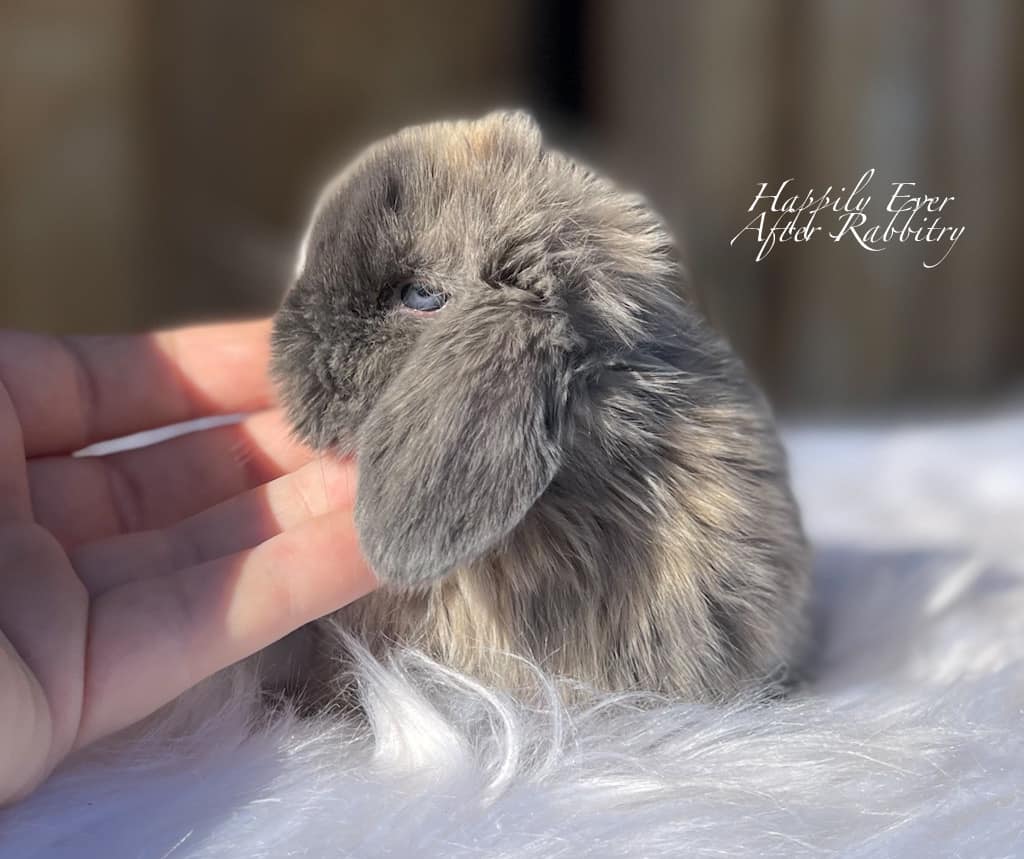

How much are baby bunnies?
The cost of baby bunnies from a reputable breeder can vary widely depending on several factors, including the breed, lineage, and the breeder’s experience. At Happily Ever After Rabbitry, we prioritize the well-being, structure, and temperament of our bunnies, specializing in the unique and rare blue-eyed Vienna marked variety. On average, you can expect to pay anywhere from $400 to $600 or more for a baby bunny from a responsible and ethical breeder like Happily Ever After Rabbitry.
What is the lifespan of a baby bunny?
With the right care, baby bunnies can enjoy a lifespan of 10 to 12 years.
What is the friendliest pet bunny?
Truth be told, you may encounter a variety of opinions on this matter. The essential factor in having a friendly bunny is investing the time to nurture their friendliness. At Happily Ever After Rabbitry, each of our bunnies for sale is thoughtfully bred with the goal of becoming the ideal pet companion.
Do baby bunnies like to cuddle?
Bunnies are incredibly soft, and many of them will cherish cuddle time with you as much as you do. Once a bunny feels at ease in their new home, they might even claim you as their own by affectionately rubbing their chin on you, marking you as part of their territory.
Do baby bunnies like being held?
We begin handling our baby bunnies from day one, a process that helps desensitize them. Generally, bunnies may experience stress or a sensation akin to falling. It’s crucial to handle them by supporting their hind legs, and gently pressing them against your chest can enhance their sense of security.
How often should you hold a bunny?
While it’s a somewhat controversial issue, if you aim to hold your baby bunny comfortably, consistent desensitization through gentle handling is essential. With time and patience, you’ll find that picking up your baby bunny becomes a smooth task. However, if holding your bunny isn’t a high priority, offering cuddles when the bunny is on all fours can be perfectly adequate and enjoyable for both you and your bunny.
Is it better to have 2 bunnies than 1?
Bunnies are social animals by nature and will do much better with a companion. Bunnies kept in pairs tend to be happier, calmer, and experience less stress, ultimately leading to a longer and more fulfilling life.
Is it better to have 2 male or female rabbits?
We highly recommend pairing one male and one female, preferably bonded siblings. It’s advisable to have them spayed and neutered at the age of 6 months. They will need to be kept separated until they are both neutered and spayed.
Can baby bunnies be litter trained?
Absolutely! Baby bunnies are quite receptive to litter training because they naturally prefer using the same spot for their potty needs. All our bunnies have already started their litter training, ensuring a smooth transition to their new home.
Do bunnies smell a lot?
Bunnies are naturally self-cleaning animals and surprisingly tidy in their habits. Their feces appear as small, dry pellets with minimal odor, but it’s their urine that can emit an unpleasant smell if the litter pan isn’t cleaned regularly.
Do bunnies need their nails trimmed?
Yes, bunnies require monthly nail trimming. To simplify this task, a useful trick is to gently position a cheesecloth against their nails, pushing back the fur to access and trim the nails easily.
Can bunnies free roam the house?
Once your house is bunny-proofed and litter training is successfully accomplished, it’s typical for bunnies to enjoy the freedom of the entire house or even a dedicated room.
How long does it take for me to bond with my bunny?
The time it takes can vary, from immediate bonding to several months. Here are some helpful tips: Spend quality time with your bunny, use enticing treats to build trust, and maintain a soothing and frequent dialogue with them.
How long can a bunny be left alone?
While we all have commitments that may necessitate leaving our homes, I’d advise against leaving your bunny unattended for more than 24 hours, provided they have an ample supply of food and water. Bunnies are inherently social creatures and can experience feelings of sadness or loneliness if left alone for extended periods.
Can I let my bunny go free if I can’t care for it anymore?
Releasing a domestic bunny into the wild is never a suitable option, even if you find yourself unable to continue caring for it, as this constitutes an unlawful act. Instead, it’s crucial to reconnect with the breeder. A responsible breeder typically accepts the return of bunnies they’ve bred. Alternatively, they can assist in rehoming the bunny to a suitable and qualified home. This approach ensures the welfare and responsible care of the bunny.
